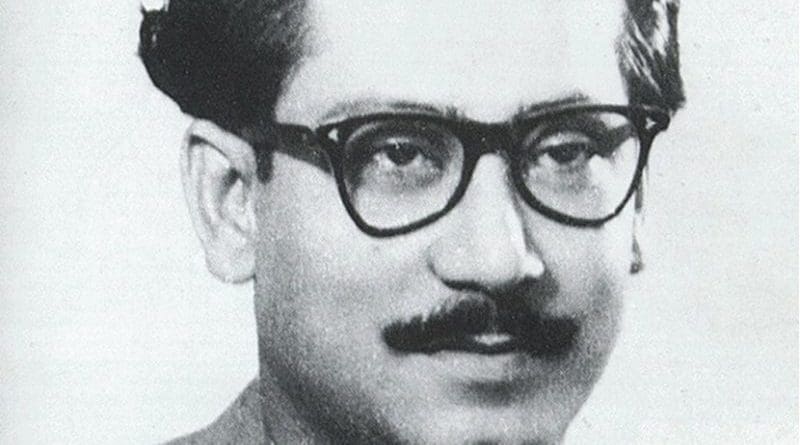Bangladesh Falls Short Of Founding Father’s Dream
By UCA News
By Stephan Uttom and Rock Ronald Rozario
As Bangladeshis observed National Mourning Day on Aug. 15 to pay tribute to the country’s founding father, Christian leaders and a political analyst said the nation is increasingly failing to live up to Sheikh Mujibur Rahman’s dream of a truly democratic, secular and tolerant Bangladesh.
Political, social and cultural organizations marked the day with rallies and seminars. Education institutes including those run by the Catholic Church also held programs.
Thousands waited to place wreaths in front of the great statesman’s former residence (now a museum) in Dhaka, where he was assassinated with most of his family in 1975.
The national flag flew at half-mast across the country, while special prayers were held in mosques, temples, churches and pagodas.
During his three-day visit to Bangladesh last year, Pope Francis visited the museum to pay tribute to the slain leader on Nov. 30.
Father Liton Hubert Gomes, convener of the Justice and Peace Commission in Dhaka Archdiocese, said Bangladesh has not recovered fully from Mujib’s death.
“Sheikh Mujib was an advocate for unity, solidarity and secularism, and he banned the use of religion in politics. Today we see disunity and authoritarianism in politics, Islam as the state religion, and radicalism creeping into the nation now and then. The country is slipping away from Mujib’s dream of a truly democratic and secular nation,” Father Gomes told ucanews.com.
Basic rights such as freedom of expression are being compromised by the state, casting a cloud over democratization, the priest said.
The fallout from Mujib’s death has diluted Bangladesh’s journey, said Shantunu Majumder, an associate professor of political science at Dhaka University.
“The political changeover and 15 years of military rule led the country backwards to a Pakistan-style Islamized state devoid of the true spirit of democracy. Military regimes tried to impose an Islamic identity on the nation, and our political leaders failed to stop it. Before Aug. 15, 1975, both ruling and opposition parties were united for democracy, secularism and tolerance, but today the situation is the opposite,” Majumder told ucanews.com.
Born on March 17, 1920, Mujib studied at a Christian missionary school in Gopalganj district of Dhaka.
Politically active in his university days, Mujib joined the Awami League in 1949. His “close to people” politics and charismatic leadership shot him up the ranks of the party. In 1970, Mujib led the Awami League to a landslide victory in Pakistan’s first general election after the 1947 British partition of India.
Pakistan’s ruling elites, overtly influenced by the military, refused to hand over power to the Awami League, sparking massive public unrest.
Mujib was arrested and a military crackdown launched to quell protests. Bengali fighters led by the Awami League defeated the army after a nine-month bloody war in 1971 with the support of India.
Freed from prison and back in Bangladesh, Mujb formed a government and became the first president of the country in 1972.
A group of disgruntled soldiers killed Mujib with most of his family in the early hours of Aug. 15, 1975. Mujib’s daughters — current PM Sheikh Hasina and Sheikh Rehana — survived because they were in Germany.
The murders sparked massive political upheaval and a series of coups and counter-coups followed. Two military regimes from 1975-90 erased secularism from the constitution, established Islam as the state religion and introduced religion-based politics.
Despite the ruling Awami League not being avowedly secular anymore, the general public believe in the true spirit of democracy advocated by Mujib, Majumder said.
“The only hope rests with the people, who still believe in unity, democracy, secularism and religious harmony. People always do the right things and they would put political parties on the right track despite their attempts to reap a harvest from political expediency and electoral politics,” he added.

